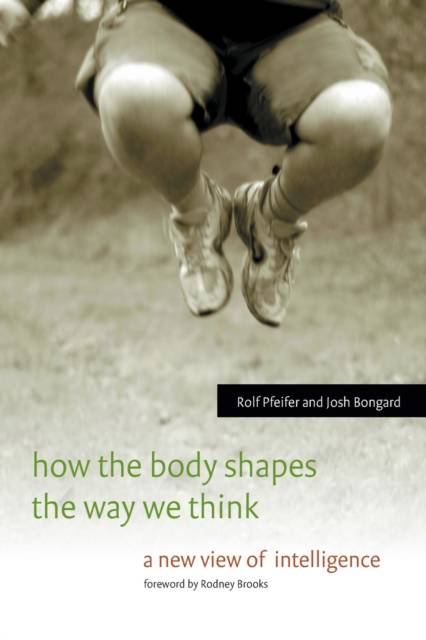
- Retrait gratuit dans votre magasin Club
- 7.000.000 titres dans notre catalogue
- Payer en toute sécurité
- Toujours un magasin près de chez vous
- Retrait gratuit dans votre magasin Club
- 7.000.000 titres dans notre catalogue
- Payer en toute sécurité
- Toujours un magasin près de chez vous
Description
How could the body influence our thinking when it seems obvious that the brain controls the body? In How the Body Shapes the Way We Think, Rolf Pfeifer and Josh Bongard demonstrate that thought is not independent of the body but is tightly constrained, and at the same time enabled, by it. They argue that the kinds of thoughts we are capable of have their foundation in our embodiment--in our morphology and the material properties of our bodies.
This crucial notion of embodiment underlies fundamental changes in the field of artificial intelligence over the past two decades, and Pfeifer and Bongard use the basic methodology of artificial intelligence--"understanding by building"--to describe their insights. If we understand how to design and build intelligent systems, they reason, we will better understand intelligence in general. In accessible, nontechnical language, and using many examples, they introduce the basic concepts by building on recent developments in robotics, biology, neuroscience, and psychology to outline a possible theory of intelligence. They illustrate applications of such a theory in ubiquitous computing, business and management, and the psychology of human memory. Embodied intelligence, as described by Pfeifer and Bongard, has important implications for our understanding of both natural and artificial intelligence.
Spécifications
Parties prenantes
- Auteur(s) :
- Editeur:
Contenu
- Nombre de pages :
- 418
- Langue:
- Anglais
- Collection :
Caractéristiques
- EAN:
- 9780262537421
- Date de parution :
- 27-10-06
- Format:
- Livre broché
- Format numérique:
- Trade paperback (VS)
- Dimensions :
- 152 mm x 229 mm
- Poids :
- 557 g







